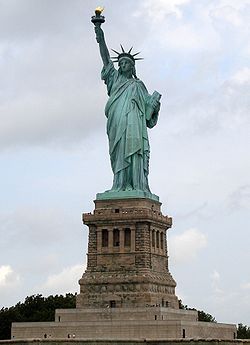“Punting the Pundits” is an Open Thread. It is a selection of editorials and opinions from around the news medium and the internet blogs. The intent is to provide a forum for your reactions and opinions, not just to the opinions presented, but to what ever you find important.
Thanks to ek hornbeck, click on the link and you can access all the past “Punting the Pundits”.
Follow us on Twitter @StarsHollowGzt
Chelsea Manning: The Fog Machine of War
When I chose to disclose classified information in 2010, I did so out of a love for my country and a sense of duty to others. I’m now serving a sentence of 35 years in prison for these unauthorized disclosures. I understand that my actions violated the law.
However, the concerns that motivated me have not been resolved. As Iraq erupts in civil war and America again contemplates intervention, that unfinished business should give new urgency to the question of how the United States military controlled the media coverage of its long involvement there and in Afghanistan. I believe that the current limits on press freedom and excessive government secrecy make it impossible for Americans to grasp fully what is happening in the wars we finance.
If you were following the news during the March 2010 elections in Iraq, you might remember that the American press was flooded with stories declaring the elections a success, complete with upbeat anecdotes and photographs of Iraqi women proudly displaying their ink-stained fingers. The subtext was that United States military operations had succeeded in creating a stable and democratic Iraq.
Those of us stationed there were acutely aware of a more complicated reality.
Dean Baker: Doing for the Poor and Doing to the Poor
Washington is full of well-meaning types who want to help the poor. The list of prospective helpers includes not only the standard liberal do-gooder types talking about programs like pre-K education, but also conservatives like Paul Ryan who argue that taking away food stamps and other benefits will give low-income people the motivation they need to go out and get a job.
While sincere efforts to help the poor should be encouraged, we should also realize that our current economic policies are doing much to harm the poor. First and foremost we should realize that the decision to maintain high rates of unemployment is having a devastating impact on the well-being of millions of low and moderate income workers and their children.
The reasons are straightforward. When the overall unemployment rate goes up, the rate for the less-educated and minorities rises even more. This has been a regular pattern in the data for many decades that has been very visible in the current downturn.>
Thought the NSA was bad? Local police and the Obama administration are hoovering cellphone location data from inside your house, and a crackdown could lead to surveillance reform
All across America, from Florida to Colorado and back again, the country’s increasingly militarized local police forces are using a secretive technology to vacuum up cellphone data from entire neighborhoods – including from people inside their own homes – almost always without a warrant. This week, numerous investigations by major news agencies revealed the US government is now taking unbelievable measures to make sure you never find out about it. But a landmark court ruling for privacy could soon force the cops to stop, even as the Obama administration fights to keep its latest tool for mass surveillance a secret.
So-called International Mobile Subscriber Identity (IMSI) catchers – more often called their popular brand name, “Stingray” – have long been the talk of the civil liberties crowd, for the indiscriminate and invasive way these roving devices conduct surveillance. Essentially, Stingrays act as fake cellphone towers (usually mounted in a mobile police truck) that police can point toward any given area and force every phone in the area to connect to it. So even if you’re not making a call, police can find out who you’ve been calling, and for how long, as well as your precise location. As Nathan Freed Wessler of the ACLU explained on Thursday, “In one Florida case, a police officer explained in court that he ‘quite literally stood in front of every door and window’ with his stingray to track the phones inside a large apartment complex.”
Yet these mass surveillance devices have largely stayed out of the public eye, thanks to the federal government and local police refusing to disclose they’re using them in the first place – sometimes, shockingly, even to judges.
Peter van Buren: What We’ve Lost Since 9/11
Taking down the First Amendment in post-constitutional America
America has entered its third great era: the post-constitutional one. In the first, in the colonial years, a unitary executive, the King of England, ruled without checks and balances, allowing no freedom of speech, due process, or privacy when it came to protecting his power.
In the second, the principles of the Enlightenment and an armed rebellion were used to push back the king’s abuses. The result was a new country and a new constitution with a Bill of Rights expressly meant to check the government’s power. Now, we are wading into the shallow waters of a third era, a time when that government is abandoning the basic ideas that saw our nation through centuries of challenges far more daunting than terrorism. Those ideas — enshrined in the Bill of Rights — are disarmingly concise. Think of them as the haiku of a genuine people’s government.
Deeper, darker waters lie ahead and we seem drawn down into them. For here there be monsters.
Robert Fisk: The Western-Imposed Partition of the Middle East Is Dead
“Sykes-Picot is dead,” Walid Jumblatt roared at me last night – and he may well be right.
The Lebanese Druze leader – who fought in a 15-year civil war that redrew the map of Lebanon – believes that the new battles for Sunni Muslim jihadi control of northern and eastern Syria and western Iraq have finally destroyed the post-World War Anglo-French conspiracy, hatched by Mark Sykes and François Picot, which divided up the old Ottoman Middle East into Arab statelets controlled by the West.
The Islamic Caliphate of Iraq and Syria has been fought into existence – however temporarily – by al-Qa’ida-affiliated Sunni fighters who pay no attention to the artificial borders of Syria, Iraq, Lebanon or Jordan, or even mandate Palestine, created by the British and French. Their capture of the city of Mosul only emphasises the collapse of the secret partition plan which the Allies drew up in the First World War – for Mosul was sought after for its oil wealth by both Britain and France.
The entire Middle East has been haunted by the Sykes-Picot agreement, which also allowed Britain to implement Foreign Secretary Arthur Balfour’s 1917 promise to give British support to the creation of a Jewish “homeland” in Palestine. Perhaps only today’s Arabs (and Israelis) fully understand the profound historical changes – and deep political significance – that the extraordinary battles of this past week have wrought on the old colonial map of the Middle East.
George Zornick: Hillary Still Doesn’t Get It on Iraq
The unfortunate re-eruption of warfare in Iraq will lead to many more questions for Hillary Clinton about her past support for the war-a rather unfortunate thing from her point of view, given the issue was a key reason for her 2008 Democratic presidential primary loss.
Her answer to one such question at a forum in Toronto reveals Clinton still has serious trouble talking about the war in a language recognized by those who opposed it-and there are a great many.
According to Alex Seitz-Wald of National Journal, this is what Clinton said at an event sponsored by the Toronto Region Board of Trade:According to Alex Seitz-Wald of National Journal, this is what Clinton said at an event sponsored by the Toronto Region Board of Trade:
Clinton says “smart political move” would have been to recant on iraq vote earlier, but “I couldn’t break faith with” service members.
That statement echoes some of the worst impulses of the Bush administration, which were to frame supporting the war publicly as a matter of “supporting the troops.”
One of the central animating concerns of the anti-war movement – from the Cindy Sheehan encampment to a young Senator named Barack Obama’s describing soldiers from Illinois who had been badly maimed by battle-was for the thousands of US troops dying, and the thousands more being injured, in what was ultimately a needless war. When George W. Bush would bash war opponents as people who didn’t “support the troops,” the anti-war refrain was: that’s exactly what we’re doing. Hillary perhaps does not accept that argument-or if she does, it’s hard to tell.







 Sunday Train has covered the California HSR project on a number of occasions in the past. However, there was no special attention given to what was widely covered at the time as the “end of California HSR”, when a judge ruled that the proposed Business Plan did not meet the terms of the Prop1A(2008) which governed the sale of much of the $9m in state bond authority which had passed in 2008. The Sacramento Bee covered the issue at the time, including the
Sunday Train has covered the California HSR project on a number of occasions in the past. However, there was no special attention given to what was widely covered at the time as the “end of California HSR”, when a judge ruled that the proposed Business Plan did not meet the terms of the Prop1A(2008) which governed the sale of much of the $9m in state bond authority which had passed in 2008. The Sacramento Bee covered the issue at the time, including the
Recent Comments